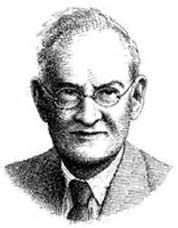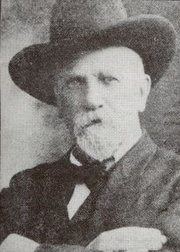A Quote by Eric Hoffer
The most effective way to silence our guilty conscience is to convince ourselves and others that those we have sinned against are indeed depraved creatures, deserving every punishment, even extermination. We cannot pity those we have wronged, nor can we be indifferent toward them. We must hate and persecute them or else leave the door open to self-contempt.
Related Quotes
It is with all these qualities that we must stand before God and intervene on behalf of those who do not have them, as though clothed with someone else's garmentBut even before men we must, with the same love, render them service against their detractors and those who are violent toward them; for this is what Christ did for us.
In our hearts... there must abide some pity for those people who have always felt themselves to be separate from even their most familiar surroundings, those people who either are foreigners or who suffer a singular point of view that makes them feel as if they’re foreigners - even in their native lands. In our hearts... there also abides a certain suspicion that such people need to feel set apart from their society. But people who initiate loneliness are no less lonely than those who are suddenly surprised by loneliness, nor are they undeserving of our pity.
In handling men, there are three feelings that a man must not possess-fear, dislike and contempt. If he is afraid of men he cannot handle them. Neither can he influence them in his favor if he dislikes or scorns them. He must neither cringe nor sneer. He must have both self-respect and respect for others.
The one enemy in the world that America has is England. But then, England is the great land of Christian civilization, and it may not be a thing to be much wondered at that our Americans whom we send to represent us in London become in a short time somewhat civilized, and learn to love those who hate them, bless those that curse them, and do good to those that persecute and calumniate them.
Most of the time it's not the Europeans who belittle us. What happens when we look at them is that we belittle ourselves. When we undertake the pilgrimage, it's not just to escape the tyranny at home but also to reach to the depths of our souls. The day arrives when the guilty must return to save those who could not find the courage to leave.
This miserable way
is taken by the sorry souls of those
who lived without disgrace and without praise.
They now commingle with the coward angels,
the company of those who were not rebels
nor faithful to their God, but stood apart.
The heavens, that their beauty not be lessened,
have cast them out, nor will deep Hell receive them -
even the wicked cannot glory in them.
In the search for character and commitment, we must rid ourselves of our inherited, even cherished biases and prejudices. Character, ability and intelligence are not concentrated in one sex over the other, nor in persons with certain accents or in certain races or in persons holding degrees from some universities over others. When we indulge ourselves in such irrational prejudices, we damage ourselves most of all and ultimately assure ourselves of failure in competition with those more open and less biased.
Jesus Christ left us an example for our daily conduct. He felt no bitter resentment and He held no grudge against anyone! Even those who crucified Him were forgiven while they were in the act. Not a word did He utter against them nor against the ones who stirred them up to destroy Him. How evil they all were. He knew better than any other man, but He maintained a charitable attitude toward them.
Before making peace, war is necessary, and that war must be made with our self. Our worst enemy is our self: our faults, our weaknesses, our limitations. And our mind is such a traitor! What does it? It covers our faults even from our own eyes, and points out to us the reason for all our difficulties: others! So it constantly deludes us, keeping us unaware of the real enemy, and pushes us towards those others to fight them, showing them to us as our enemies.
To resort to power one need not be violent, and to speak to conscience one need not be meek. The most effective action both resorts to power and engages conscience. Nonviolent actions does not have to get others to be nice. It can in effect force them to consult their consciences. Nor does it have to petition those in power to do something about a situation. It can face the authorities with a new fact and say: Accept this new situation which we have created.
Jesus expressed intense anger toward those who where immoral, such as the self-righteous Pharisees, but he never suggested that they were demonized. Toward the demonized, however, he never expressed anger; rather he exhibited only compassion. As Langton notes, "Pity rather than anger characterizes the attitude of Jesus toward the possessed...He treats them as if they were the victims of an involuntary possession." Indeed, he treats them as though they are casualties of war. For, in his view, this is precisely what they are.
We must feel toward our people as a father toward his children; yea, the most tender love of a mother must not surpass ours. We must even travail in birth, till Christ be formed in them. They should see that we care for no outward thing, neither liberty, nor honor, nor life, in comparison to their salvation... When the people see that you truly love them, they will hear anything from you...Oh therefore, see that you feel a tender love for your people in your hearts, and let them perceive it in your speech and conduct. Let them see that you spend and are spent for their sakes.





































